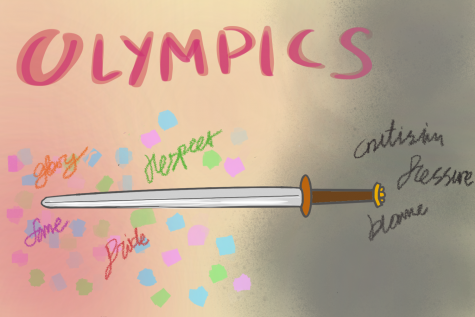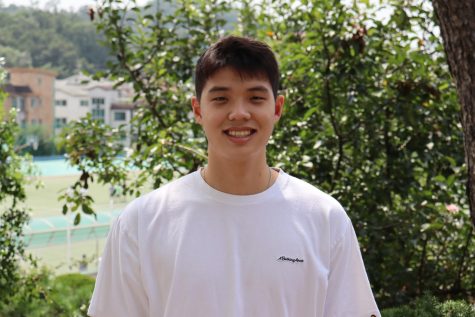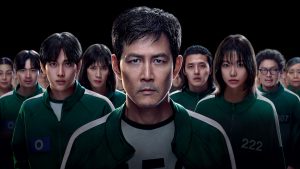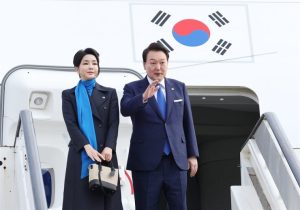Don’t cut down our own athletes
Sep 9, 2021

“Ggeut.” After letting go of his last shot for team Korea in the shootout of the gold-medal match, the veteran archer Oh Jin-hyuk uttered this word, which means “the end,” before the arrow even hit the target. A score of nine or higher would bring home the gold medal; any other score would land them a silver medal.
Breaking the silence, fellow archers Kim Je-deok and Kim Woo-jin screamed and hugged Oh with joy as the arrow struck the 10 mark.
Oh soon proudly stepped on the highest podium, placed the gold medal around his neck, and sang the Korean national anthem. From their homes, millions of Koreans hailed the names of the glorious men’s archery team that seemed to best represent the intrinsic Korean fearlessness and competitiveness that allows us to perform at astonishing levels on the world stage despite our small population and size.
Such a special sense of camaraderie and national unity from the Olympics comes back every two years, yet each time is uniquely unforgettable. Though lacking in-person spectators, the 2020 Tokyo Olympics successfully brought a magical thrill and national pride to everyone’s television screens.
Behind the glory and the gold medals for our national heroes, however, the shadow of ugly implications of hypernationalism often goes unnoticed. While medalists and athletes who exceed expectations return as glorious national heroes, those who underperform suffer a plethora of criticism.
After the goalkeeper of the Korean soccer team Song Bum-keun performed poorly in the semifinal match against Mexico, Korean netizens told the 23-year-old to retire and return to the countryside.
More than anyone, though, Park Jeong-ah is the true epitome of the polarizing treatment that Olympic athletes face based on their successes. During the Tokyo Olympics, Park, the starting outside hitter, led the team’s Cinderella run to the semifinals of the Olympics alongside Kim Yeon-koung. As Park scored the most crucial points at the tightest of margins, Korean volleyball fans named her “clutch Park.”
Park, however, had been far from a fan favorite just four years back. During the quarter-finals match in the Rio Olympics, as the Netherlands team targeted Park’s weak digs to defeat the Korean team, the public crucified Park and placed the sole blame for the loss on her. Indignant volleyball fans warned Park that North Koreans would have sent her to the Aozi Coal Mine, and such harsh criticisms made Park flinch whenever she heard the word “Olympics” for a few years.
Regardless of Korean athletes’ successes and failures at the Olympics, though, fans need to become more sympathetic and supportive. Performing at one’s highest level in the most pressured moments is an extremely difficult task. Even one of the most dominant athletes like Simone Biles who has the confidence to mark “GOAT”—denoting “greatest of all time”—suffered from anxiety and underperformed as she found the spotlight of the Olympics overburdening.
Ultimately, not everyone is up for scoring the winning basket, striking the fifth penalty kick, or setting a world record for the 100-meter dash. However, athletes’ shortcomings in overcoming pressure and anxiety do not invalidate the tireless hours they spent mastering their craft to compete at the highest stage of sports. Consequently, our pride for Korean athletes should not be contingent on their success at the Olympics, but on the fact that they represented our country on the global stage in the first place.
Beyond our attitude towards the Olympic games, we ought to also reflect the attitudes with which we view high school sports. For inexperienced, young athletes, the pressure of a KAIAC cup on the line can feel like competing for a medal in a mini Olympics. In these moments, whoever can best overcome the excruciating pressure often becomes the deciding factor of the victor.
In other words, performing poorly in a pressured competition may not accurately reflect anyone’s skill or passion for the sport. Yet, especially after critical losses, young athletes tend to overanalyze factors that brought upon failure and look to attribute blame.
Here, we should start looking to borrow a page from the Olympians’ book. Kim Yeon-koung’s leadership that brings teams together and the sportsmanship of the two high jumpers Mutaz Barshim and Gianmarco Tamberi who proudly shared the glory of gold shed light on the true fruits of the Olympic games and sports at large.






